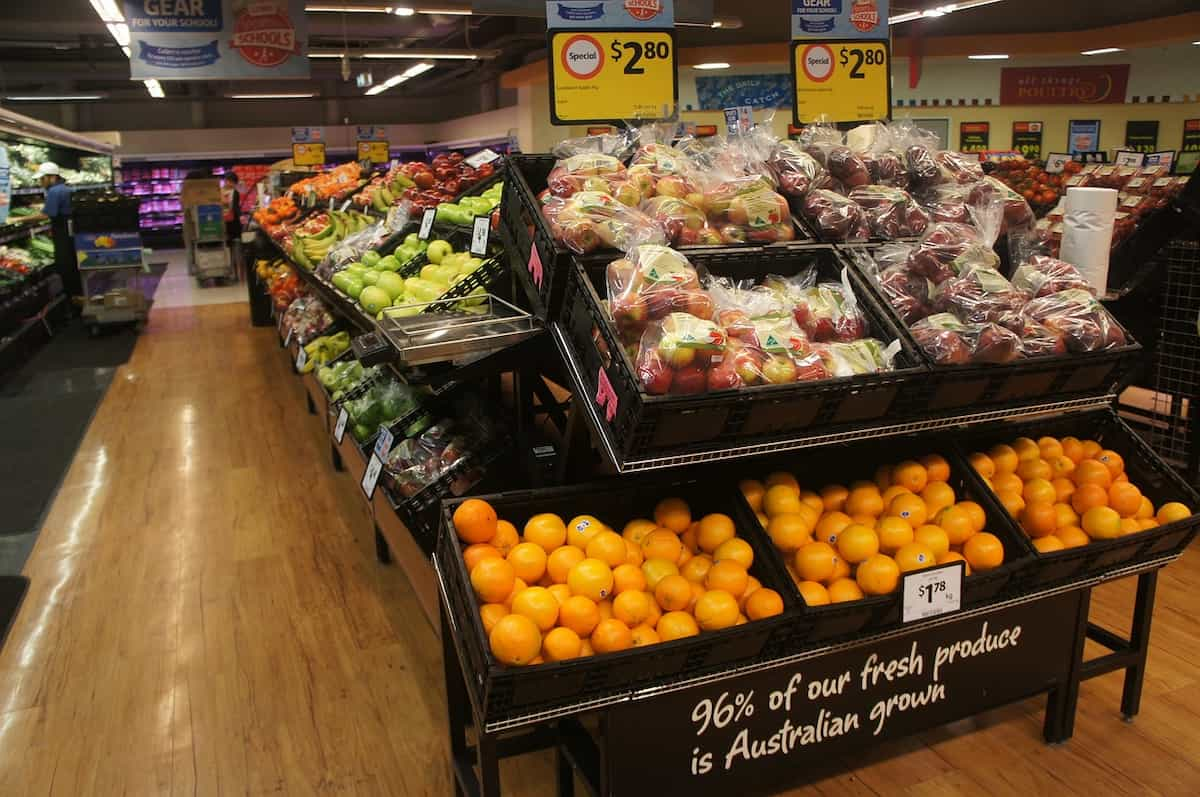
Withdrawal of food products from the market and safeguarding the manufacturer’s brand
In the dynamic and competitive landscape of the Romanian food market, guaranteeing the safety and conformity of products is of major importance for business. Consumers put their trust in food producers, expecting nothing less than the highest standards of quality and integrity. However, despite meticulous efforts, unforeseen circumstances can sometimes lead to the presence of non-compliant products on the market. When such situations arise, the recall of these products becomes a critical necessity to protect the health of consumers and to maintain the integrity of the brand’s reputation.
This article tries to deepen the complexity and consequences of the withdrawal of products from the food market in Romania. Legal entities, entrepreneurs, representatives and managers of food production companies will find valuable information and practical recommendations in these pages. Also, the article will try to make Romanian entrepreneurs in the field of food production aware of the importance of having a insurance for withdrawal of products from the market from the range professional liability insurances in order to protect themselves from harmful legal, financial and of damaging the brand image.
1. Withdrawal of products from the market – the main reasons underlying this action
On the Romanian food market, a fairly competitive regional market, maintaining the safety and conformity of products is of major importance. However, despite strict quality control measures, unforeseen circumstances may occur, which lead to the presence of non-compliant products on the shelves. Here are the main reasons that can determine the withdrawal from the market of such products.
- Non-compliance with safety and quality standards
The main reason for the withdrawal of the product is non-compliance with the safety and quality standards established by the regulatory authorities. These standards are designed to protect consumers from potential dangers, assuring them that the food they consume is free of contaminants, harmful substances and any other dangers related to manufacturing and packaging. Failure to comply with these vital requirements not only endangers the health of consumers, but also exposes food producers to legal responsibilities and serious reputational damage.
- Product contamination
Contamination of food products can occur at different stages of the supply chain, from production to distribution and handling. Biological, chemical or physical contamination can make products unsafe for consumption. Contamination can result from improper storage conditions, it can be cross-contamination or the failure to correctly address the problems of potential allergens that can be introduced in the manufacturing process. To protect public health, timely withdrawal is necessary whenever contamination problems arise.
- Wrong labeling and false claims
Transparency and correct labeling are essential for building consumer trust. Wrong labeling, intentional or unintentional, can lead to serious repercussions on the manufacturing companies. These errors may include incorrect ingredient information, misleading nutritional claims, or product misrepresentations. The discovery of mislabeling may lead to the withdrawal of the product to remedy the situation and to maintain the credibility of the brand.
2. The procedure for withdrawing non-compliant products and the competent authorities in Romania
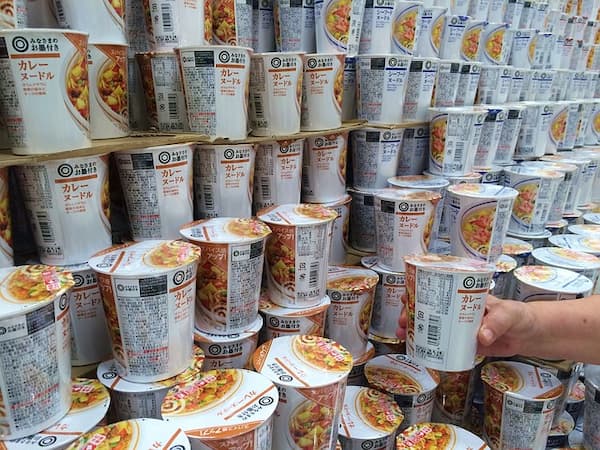
When the need to withdraw the product arises, it is essential that Romanian food producers understand the procedural steps involved and the competent authorities responsible for overseeing the process. Prompt action and in accordance with the regulations in force is essential to protect the safety of consumers and to navigate among the potential legal implications.
- Understanding the procedure for withdrawing/recalling products from the market
The recall procedure is a structured process initiated by a food manufacturer when there is a possibility, reasonable suspicion or confirmation of the existence of non-compliant or unsafe products on the market. Prompt action is essential to prevent damage to consumers and to maintain the integrity of the manufacturer’s image. The withdrawal process usually involves the following steps:
A. Identification and evaluation. The manufacturer identifies the problem, regardless of whether it is non-compliance, contamination, wrong labeling, counterfeiting, etc. and evaluates the extent and severity of the problem.
B. Immediate action. After confirming the problem, the manufacturer must take immediate measures to stop the distribution and sale of the affected products.
C. Notification of the competent authorities. The relevant competent authority, usually the National Veterinary Sanitary and Food Safety Authority (ANSVSA), must be informed of the withdrawal.
D. Public communication. Transparent communication with consumers, retailers and relevant stakeholders is vital during the withdrawal process. Clear instructions must be provided regarding the return or disposal of affected products.
E. Investigation and analysis of the main cause. The manufacturer conducts an investigation to identify the root cause of the problem and implements corrective actions to prevent future occurrences.
F. Regular updates. Regular updates on the progress of the recall and any additional information are communicated to consumers and authorities as necessary.
- The competent authorities in Romania
The withdrawal of food products from the market falls within the competence of ANSVSA. ANSVSA is responsible for supervising food safety, hygiene and quality throughout the food supply chain. The institution plays a crucial role in coordinating product recalls and ensuring compliance with relevant regulations.
In addition, the Ministry of Health and the Ministry of Agriculture and Rural Development collaborate with ANSVSA to ensure a comprehensive and efficient approach to food safety and recalls. These authorities work together to protect the health of consumers, to investigate food safety incidents and to enforce compliance with safety and quality standards.
3. Preventive measures to avoid the procedure of withdrawal/recall of products from the market
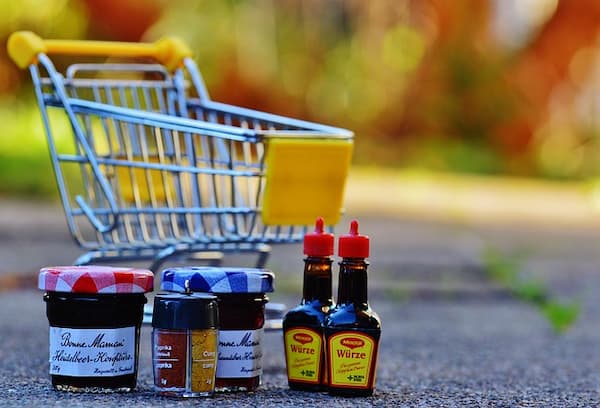
Proactive measures and robust quality control processes can significantly reduce the likelihood of non-compliant products entering the market. Here are some essential preventive measures that food manufacturers can take to guarantee product safety and compliance:
- Implementation of robust quality control and safety measures
Implementing solid quality control measures throughout the production process helps identify potential problems before the products reach the market.
Evaluation of suppliers. Careful verification and monitoring of suppliers is crucial to ensure the integrity of raw materials and ingredients. Establishing strong partnerships with reliable suppliers who adhere to strict quality standards is imperative.
Quality assurance teams. Having dedicated quality assurance teams, which carry out detailed checks at different stages of production, manufacturers can detect, in time, any deviations from safety and quality standards.
Compliance with GMP and HACCP. Adherence to good manufacturing practices (GMP) and Hazard Analysis and Critical Control Points (HACCP) principles are fundamental in maintaining product safety and reducing risks.
- Performing regular inspections and tests
Regular inspections of production facilities, equipment and storage areas are essential to identify potential hazards and ensure compliance with safety regulations. In addition, testing products for contaminants, allergens and other potential problems can provide valuable information on product integrity.
Internal audits. The implementation of internal audit processes allows companies to identify and address any deviations from established quality and safety protocols.
Testing in third-party laboratories. Hiring reputable third-party laboratories for product testing adds an additional level of assurance and objectivity in testing.
- Ensuring accurate and transparent labeling
Transparent and accurate labeling not only instills consumer confidence, but also helps prevent recall incidents related to wrong labeling. It is essential for the manufacturer to ensure that all product information, including ingredient lists and nutritional claims, is accurate and up-to-date.
Management of allergens. Efficient management of allergens and clear indication of their presence on product labels is essential to protect consumers with allergies.
Linguistic compliance. In a diverse market, ensuring that product information is available in local languages is vital to informing consumers.
- Training and educating the staff
Well-trained and informed personnel are essential for maintaining the safety and conformity of the product. Regular training on food safety practices, handling procedures and the proper use of various production and logistics equipment can contribute to a culture of diligence and responsibility.
4. The impact on the image of the brand and on consumers in the event of withdrawal of food products from the market
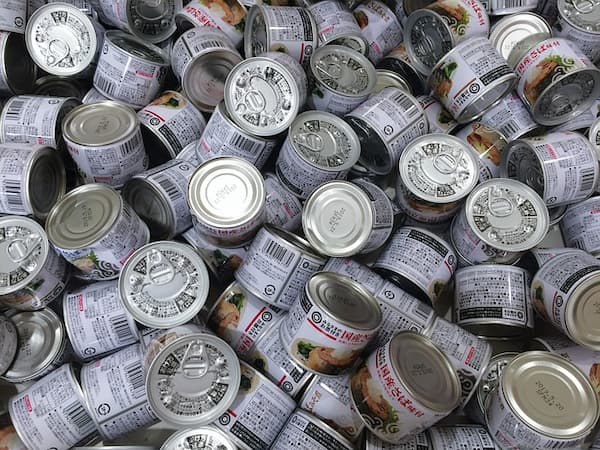
In the interconnected world of the Romanian food market, a product recall incident can have far-reaching consequences both for the image of a brand and for the trust of its consumers. The way a company deals with such situations can shape its reputation and long-term success.
- Endangering the brand reputation
The withdrawal of a product from the market can cast a shadow on a brand’s reputation, especially if the incident attracts significant media attention. Consumers expect food manufacturers to prioritize their safety, and any perception of negligence can erode trust and loyalty. A tarnished brand reputation can lead to decreased sales, loss of market share and long-term damage to the company’s image.
- Loss of consumer trust and loyalty
Trust is the foundation of any successful business-consumer relationship. When a product is withdrawn for safety reasons, consumer confidence is put to the test. Consumers may feel betrayed, and have doubts about other products offered by the brand. Restoring consumer trust after a product recall requires transparent communication, accountability and tangible actions to prevent future incidents.
5. Withdrawal of food products from the market and producer responsibility
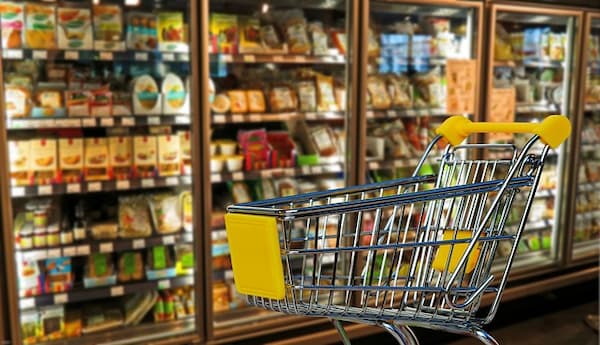
In the context of the withdrawal of food products, the assumption of responsibility by producers is essential. When faced with the need to recall non-compliant or unsafe products, manufacturers must act promptly, transparently and responsibly to protect the health of consumers and to maintain the integrity of their brands.
- Prompt action and transparent communication
When there is a potential problem with a product, time is of the essence. Food manufacturers must take quick measures to stop the distribution and sale of the affected products. Transparent and clear communication with consumers, retailers and the relevant authorities is vital to ensure that the public is informed about the recall and the reasons behind it. Sincere and proactive communication stimulates trust and demonstrates the producer’s commitment to the well-being of consumers.
- Cooperation with the competent authorities
Food manufacturers must fully cooperate with the competent authorities, such as the National Veterinary Sanitary and Food Safety Authority (ANSVSA), during the product recall process. Manufacturers must provide all necessary information and assist the authorities in their investigation to determine the extent of the problem and to prevent further damage.
- Effectiveness of withdrawal and consumer notification
Food manufacturers must ensure that the recall process is effective and that all affected products are promptly removed from the market. They must establish effective channels to reach consumers and retailers with clear instructions for returning or disposing of products. Manufacturers should actively monitor the effectiveness of the recall process to minimize consumer exposure to potentially unsafe products.
- Assistance and reinsurance for consumers
During a product recall, consumers may have concerns and questions. Food producers should establish channels through which to provide consumers with the necessary assistance, answer their questions and provide assurances regarding the measures taken to guarantee the safety of the products in the future.
6. The legal and financial implications of the withdrawal procedure for non-conforming products
Incidents of withdrawal of products from the Romanian food market can have significant legal and financial consequences for food producers. Navigating the legal landscape and understanding the financial impact are crucial aspects of the effective management of such situations.
- Legal obligations and compliance with regulations
Food manufacturers have a legal obligation to ensure that their products comply with all relevant regulations and safety standards. When a product is withdrawn due to non-compliance or safety issues, manufacturers may face investigations by the relevant authorities. Failure to fulfill legal obligations can lead to fines, penalties and legal proceedings, which can affect a brand’s reputation and impose a high financial pressure on the company’s budget.
- Proceedings for consumers and claims for compensation
In cases where consumers have been injured or suffered damages due to non-compliant or unsafe products, they can file lawsuits to request compensation. Food manufacturers can be held liable for medical expenses, various losses and other damages resulting from product recall incidents. Legal battles can be long and expensive, having a negative impact on the financial stability of a company.
- Supply chain and business interruptions
The withdrawal of the product can lead to interruptions in the supply chain, affecting both the manufacturer and the suppliers. The costs of stopping production, removing the affected products and fixing the problem can be significant. In addition, withdrawal may affect relations with suppliers, retailers and distributors and may lead to the cancellation of partnerships and commercial contracts.
- Damage to reputation and loss of market share
Reputational damage resulting from a product recall incident can have lasting effects on a brand’s position on the market. The loss of consumer confidence can lead to a decrease in sales and the loss of market share, sometimes hard-earned. Rebuilding a damaged reputation can be a long and challenging process, which requires substantial investments in marketing and public relations.
- Insurance coverage and financial protection
The financial burden of product recall incidents can be alleviated by purchasing specialized insurance products and services. Thus, the choice of some professional liability insurance, of the type product recall insurance represents the essential method of coverage, which can protect companies from the financial repercussions of product withdrawal. These insurance policies can cover the costs associated with the withdrawal process, legal defense and compensation claims.
7. The importance of ensuring the product withdrawal procedure for Romanian food industry companies
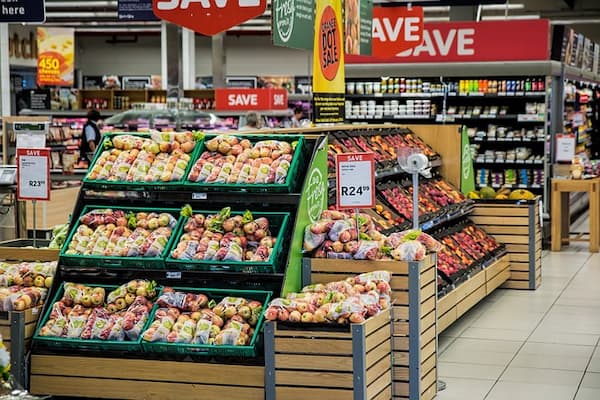
In the dynamic landscape of the Romanian food market, product recalls can occur at any time, putting food producers in front of significant financial risks and challenges related to maintaining their reputation. Thus, product recall insurance appears as a critical risk management tool that can provide financial protection and support, so necessary in these difficult situations. Here is why it is necessary to have, as a producer, such professional liability insurance and what is its role in protecting businesses in the food industry.
- Mitigation of financial risks
Product recall incidents can lead to substantial financial burdens, if we only mention the costs associated with the withdrawal process, with the necessary rectifications, losses from unrealized sales, compensation claims and production chain interruptions. Product recall insurance can help mitigate these financial risks by providing coverage for various recall-related expenses, easing the financial pressure on the business.
- Crisis management support
When a product is recalled, companies often face a crisis that requires quick and decisive action. A specialized product from the product recall insurance range can include support for crisis management, providing expertise in effective incident management. This professional assistance can help manufacturers navigate the complexity of the withdrawal process, including communication processes with consumers, regulatory authorities and other interested parties.
- Coverage of legal costs
Defending against potential lawsuits and legal proceedings can be financially crippling for a business. Product recall insurance can provide coverage for legal defense costs, ensuring manufacturers have the necessary resources to protect their interests in court.
- Protection of brand reputation
The repercussions of a product recall incident can seriously affect a brand’s reputation. That’s why product recall insurance can help offset the financial efforts of reputation management, allowing companies to restore consumer confidence and rebuild their brand image through public relations actions and specific communication strategies.
- Customized coverage for specific needs
Product recall insurance can be customized to fit the specific needs of a food manufacturer. For example, such a specialized product can cover the costs imposed by withdrawals determined by regulations or government actions, even if it is not a problem with the products.
In conclusion, food manufacturers on the Romanian market should proactively adopt preventive measures, promote a culture of quality and safety and consider the importance of product recall insurance in their risk management strategy. By integrating these practices into their operations, businesses in the field can navigate the risks inherent in the food market with better resilience, maintaining their reputation and consumer trust and ensuring, at the same time, a safer food market, for the benefit of all interested parties.
Photo source: Pixabay.com

